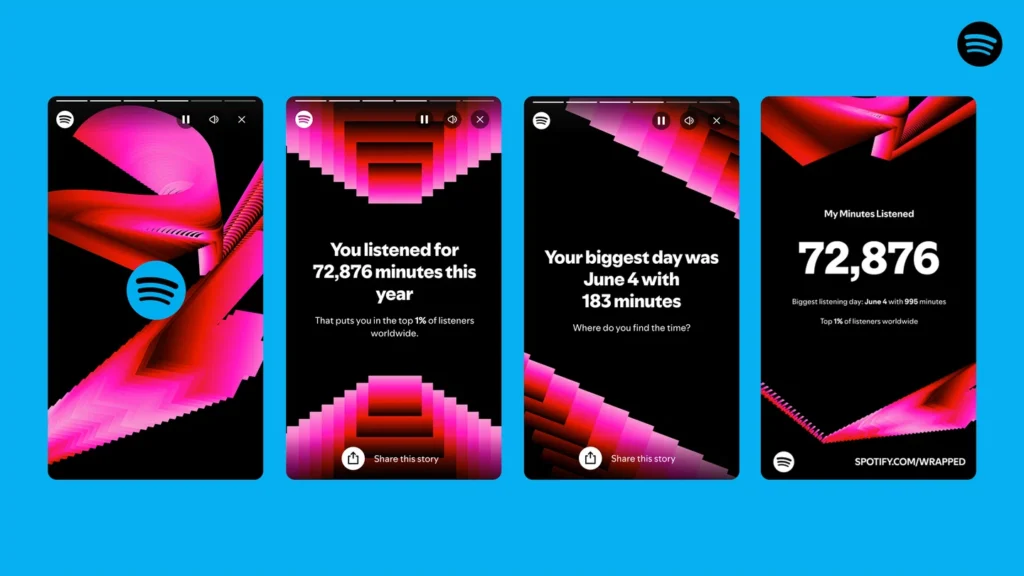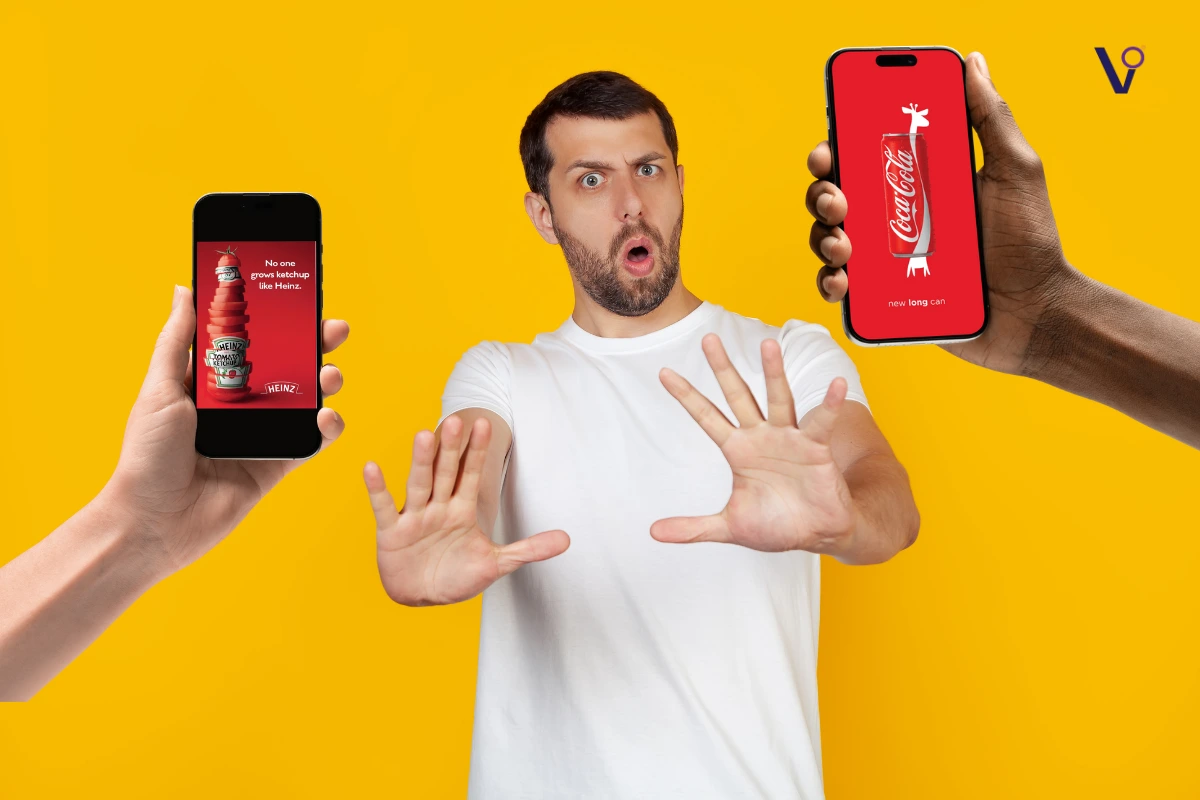Great marketing isn’t just about selling—it’s about creating connections, emotions, and trust. The best brands don’t just advertise; they build experiences that stick with people. Here are seven marketing principles every marketer should master:
1. Know Your Audience Like a Best Friend
There are three brilliant marketing principles behind Spotify Wrapped, the platform’s yearly recap that showcases users’ top artists, top podcasts, top genres, and more.

First, it gives people something personalized. As business owners, we should recognize that whenever we provide someone with personalized data about themselves, they inherently value it. People love insights about themselves, and offering that creates a sense of value and connection.
Second, this strategy drove a surge of signups. Other platforms had to copy the concept just to keep up. Spotify has continued to refine this by labeling users based on their listening habits, assigning them music identities, and deepening their personalization efforts.
For businesses, the lesson is clear: when we make something personalized and shareable, we create FOMO and engagement—driving growth and brand loyalty.
2. Sell Stories, Not Stats
Nike’s Just Do It campaigns aren’t about shoes—they’re about ambition, resilience, and chasing your dreams. People don’t just buy products; they buy the stories behind them.
The way Phil Knight used to talk about Nike perfectly illustrates this principle. At a large conference, he stood up and addressed the audience:
“If any of you have ever run for exercise, can you please stand up?”
Most of the room stood.
“If you run at least once a week, please keep standing. The rest, sit down.”
A portion of the room sat.
“If you run twice a week, please keep standing.”
More people sat.
“If you run three times a week—rain or shine, regardless of the weather or temperature—please keep standing.”
Now, only a few dedicated runners remained.
He looked out at them and said,
“The next time you’re out there before the sun is up—it’s dark, it’s cold, it’s wet, and you’re running by yourself—we’re the ones standing under the lamppost, cheering you on.”
That is Nike. In an instant, you understand what Just Do It truly means. It’s not about winning but trying. That is why Sell Stories, Not Stats.
3. Simplicity is Key
Ever wonder how Apple makes you want their newest gadgets before you even see them? Their secret lies in a marketing strategy built on simplicity and emotion.
Apple creates hype through exclusive events that feel like global celebrations, making every product launch an experience. Their ads don’t just focus on how products work—they focus on how they feel. By making technology feel personal and cool, Apple makes customers feel like they’re part of something bigger. Apple’s message? Think Different. They inspire creativity and individuality by blending simplicity with emotion. This approach doesn’t just sell products—it turns customers into loyal fans.
That is why simplicity is key.
4. Emotion > Logic
Coca-Cola’s Share a Coke campaign wasn’t just about soda—it sparked joy, connection, and a sense of belonging. People remember how brands make them feel, not just what they sell.
5. Create FOMO Like a Pro
Back to the very first example we took. Back to the very first example we took—Spotify Wrapped. It is highly shareable.
When users began sharing their wrapped recaps all over social media, it created a massive FOMO (fear of missing out) effect. Others saw it and thought, “I wish I had mine!”—which led to a surge in curiosity and engagement.
6. Retention Over Acquisition
Why is Starbucks a hundred-billion-dollar company? Well, I’ll tell you what it isn’t—it’s not because of amazing funnels, highly converted landing pages, or crazy ad copy.

Starbucks thrives because their average lifetime value per customer is over $14,000. In $5 cup increments, that adds up to over 2,800 cups of coffee throughout a customer’s lifetime.
The biggest success Starbucks had was realizing they needed to create a product people wouldn’t stop buying. Until you reach the point where customers continually return to buy your product over and over—and tell their friends about it—you should stay focused on perfecting that.
Once you crack that formula, you can scale limitlessly. After all, you only need to acquire a customer once to keep them for life.
7. Consistency Builds Trust
Long-term business success cannot be achieved unless consistency is upheld. Inconsistency is, in fact, the fastest way to lose customers—not because nobody is interested in having a quality product or service, but because nobody likes to be in a situation of uncertainty about quality.
Customers are willing to pay a premium for brands not so much because of the quality offered but because they are reliable. This is why McDonald’s remains a global success. It’s not that they serve the greatest burgers, but they ensure that no meal is ever terrible.
Even Usain Bolt, before competing in major races, sticks to eating only McDonald’s Chicken McNuggets for three weeks. You’d expect an athlete of his caliber to have meals prepared by a Michelin-starred chef, but he prioritizes consistency—he knows exactly what he’s getting every time, ensuring he gets protein without the risk of falling ill.
Consistency in quality, service, and delivery is what builds strong brands and lasting customer trust.
Great marketing isn’t accidental—it’s built on principles that make people feel, connect, and act. At ViralOmega, we help brands craft compelling ads that drive engagement, spark FOMO, and create lasting customer loyalty. Reach out today.
Great marketing follows key principles: Know your audience, sell stories not stats, keep it simple, use emotions over logic, create FOMO, sell experience over price, and stay consistent.
The 80/20 rule states 80% of your sales come from 20% of customers. Focus on high-value buyers, just like Starbucks does—ensuring repeat business and long-term loyalty.
People buy feelings, not just products. Coca-Cola’s Share a Coke campaign wasn’t about soda; it created joy, nostalgia, and personal connections—making it more powerful than price or ingredients.
Yes, Apple’s Think Different proves less is more. Simple, emotional messaging makes products irresistible. Instead of features, Apple sells creativity and innovation—turning customers into lifelong fans.



